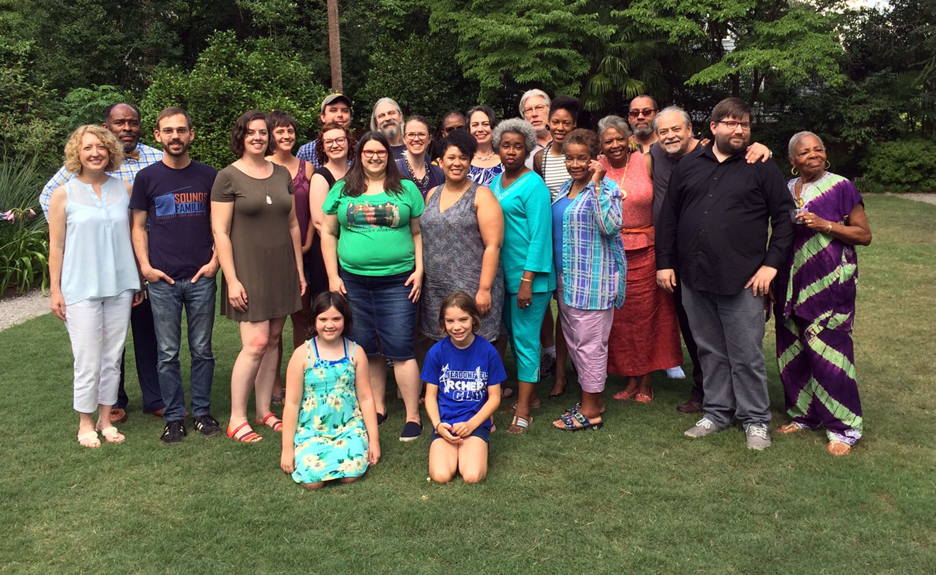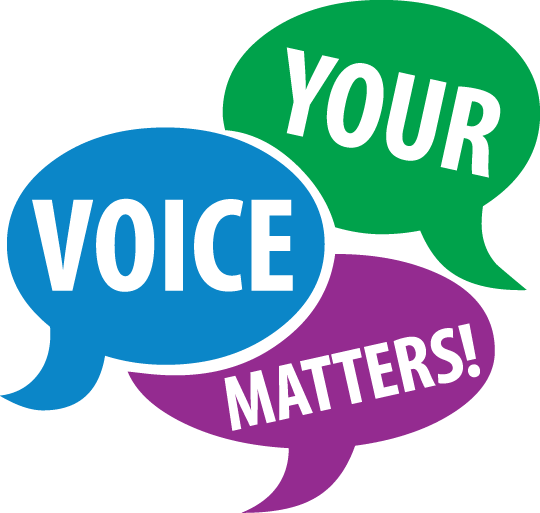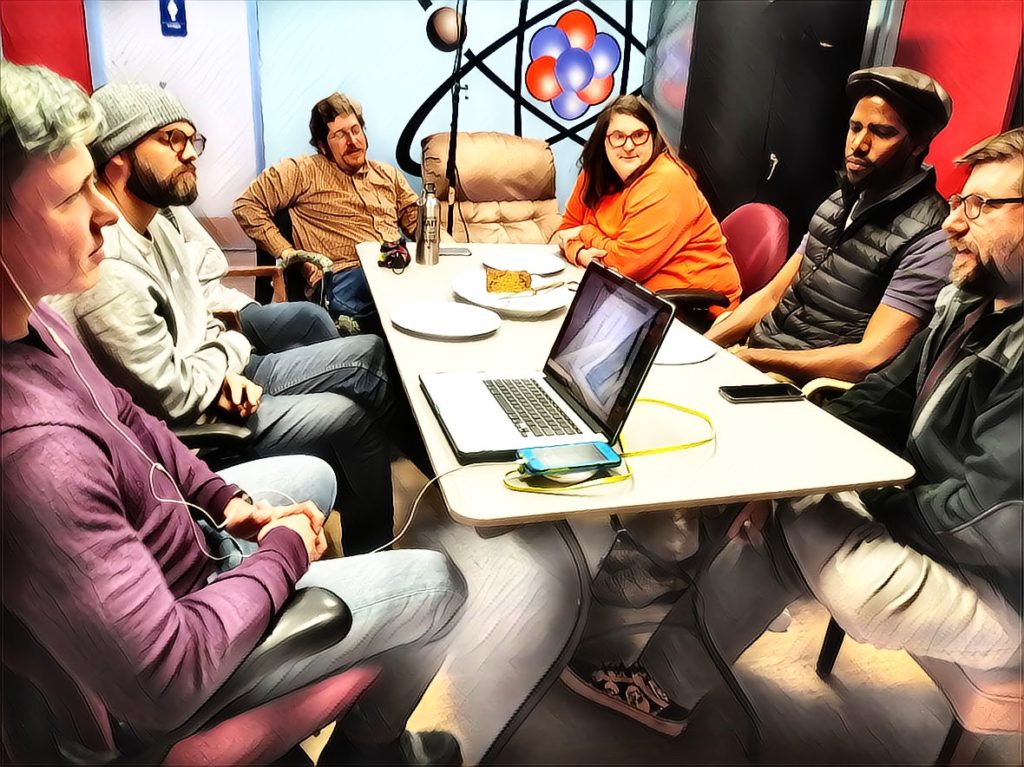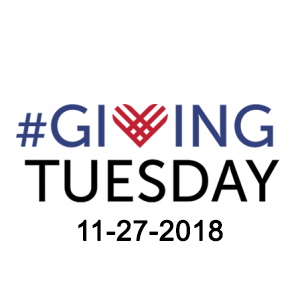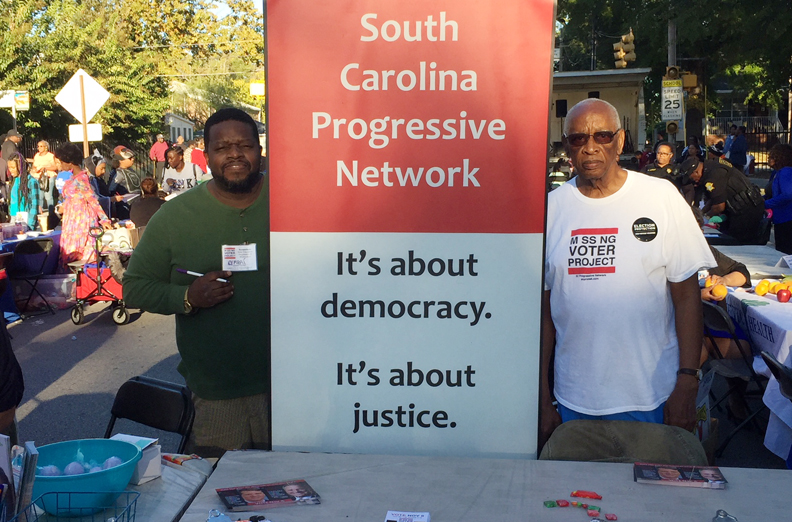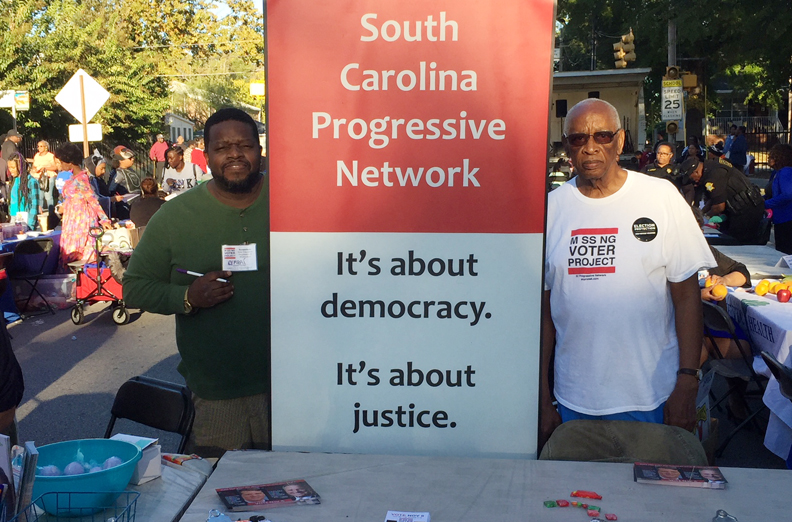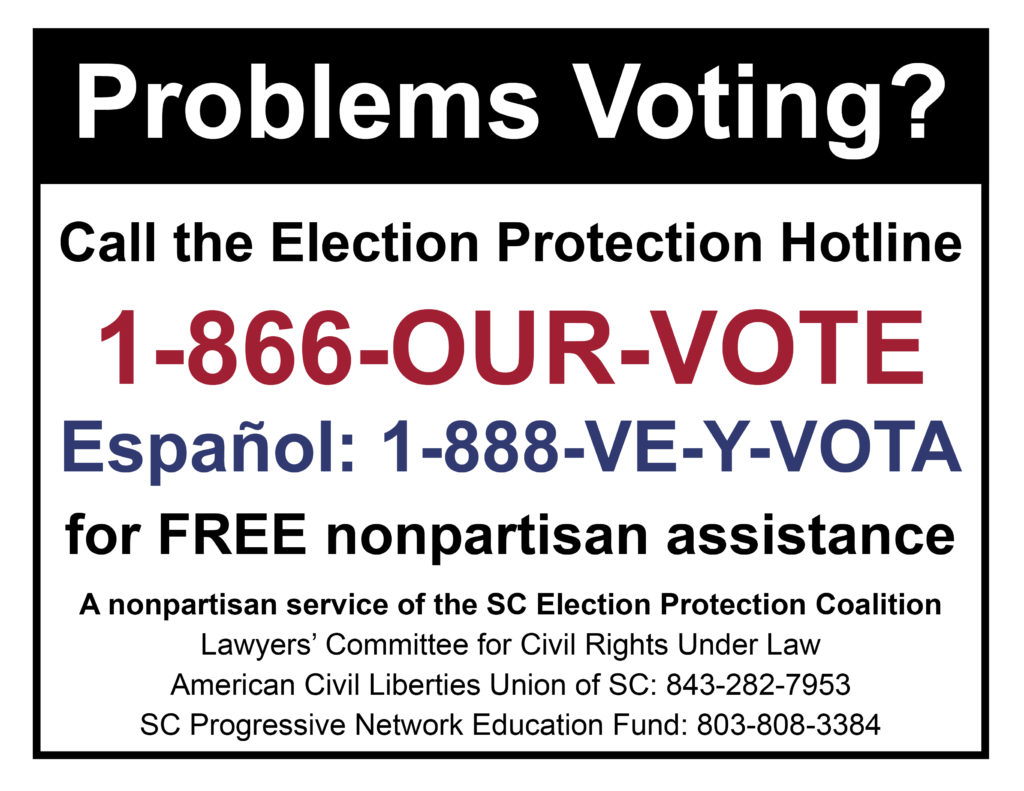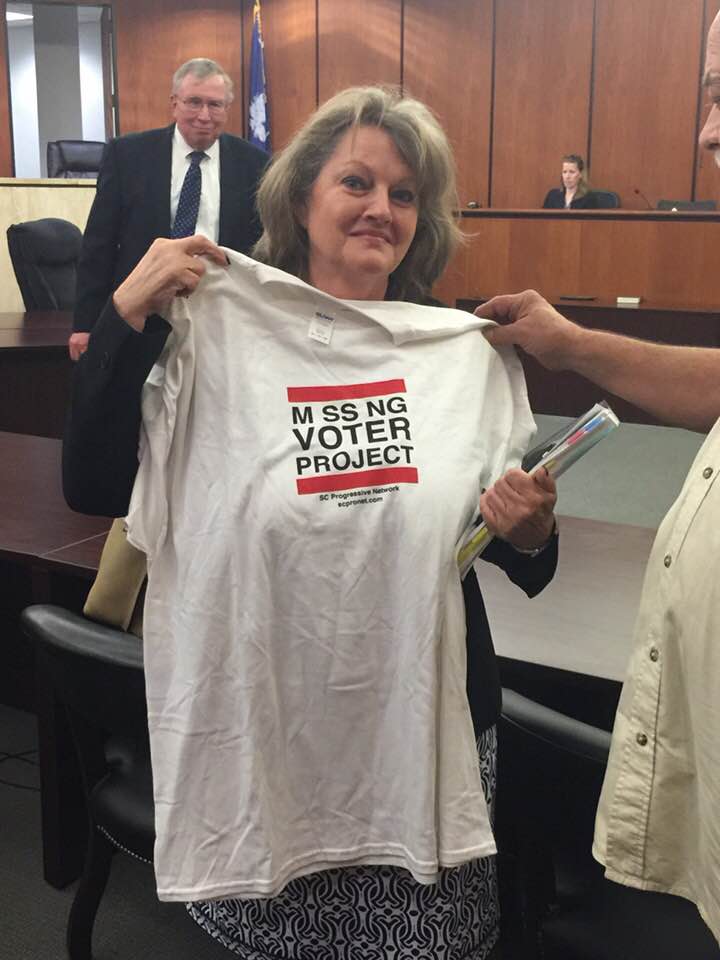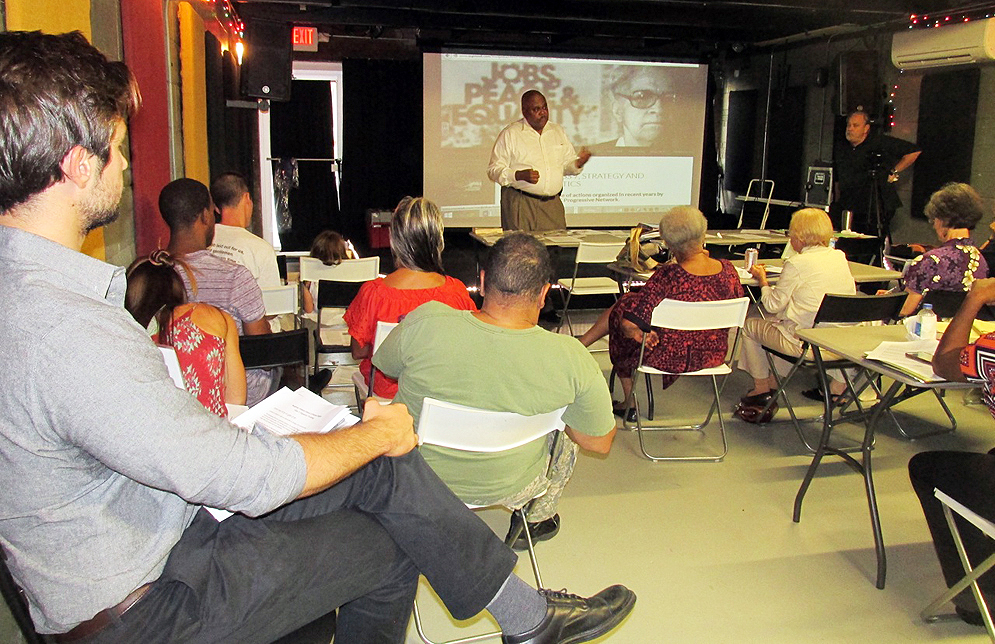 The public is invited to apply for the spring session of the Modjeska Simkins School for Human Rights, which begins March 18 and runs through June 24. The school, a project of the SC Progressive Network, was launched in 2015 as a leadership institute for activists to learn a people’s history of South Carolina, hone their organizing skills, and help grow a movement for social justice in the Palmetto State. This will be the school’s fourth session.
The public is invited to apply for the spring session of the Modjeska Simkins School for Human Rights, which begins March 18 and runs through June 24. The school, a project of the SC Progressive Network, was launched in 2015 as a leadership institute for activists to learn a people’s history of South Carolina, hone their organizing skills, and help grow a movement for social justice in the Palmetto State. This will be the school’s fourth session.
“The school is exceeding even our most hopeful expectations,” said Network Director Brett Bursey. “The students have been deeply engaged in class discussions, and graduates have gone on to do impressive things, from serving on the boards of nonprofits, to researching and crafting a campaign to end gerrymandering in South Carolina, to starting a podcast for young activists, to staging tours of the State House grounds and offering a more honest historical narrative about who the monuments memorialize, and when and why they were erected.”
One of the creators of the monument tours is USC’s Student Services Manager Dr. Sarah Keeling, who attended the Modjeska School in 2017. An activist with the Columbia group Standing Up For Racial Justice, Keeling said, “At the Modjeska School, I learned South Carolina history that I was never taught in school and how that history impacts the lives of South Carolinians today. The school gave me a solid foundation from which to build my organizing skills.”
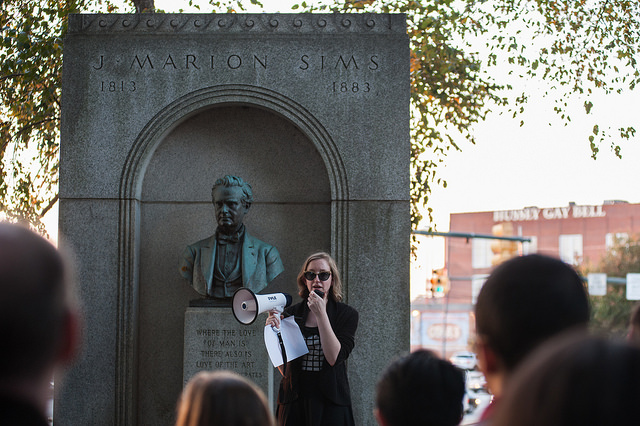 Kyle Criminger, a graduate of the school’s inaugural class in 2015, now serves as a Network co-chair and is the lead organizer for the organization’s Fair Maps campaign to allow citizens rather than politicians to draw district maps. “The Modjeska School took us on a haunted, enthralling trek through South Carolina’s stolen and denied history, giving me a long view and a wide perspective on the problems here,” Criminger said. “The ongoing practicum I am working on with fellow graduates allows us to carry out a shared commitment to the values and principles that South Carolinians like Modjeska Simkins herself have held and lived by. That’s why I say that the School is a complete program and national model for community organizing.”
Kyle Criminger, a graduate of the school’s inaugural class in 2015, now serves as a Network co-chair and is the lead organizer for the organization’s Fair Maps campaign to allow citizens rather than politicians to draw district maps. “The Modjeska School took us on a haunted, enthralling trek through South Carolina’s stolen and denied history, giving me a long view and a wide perspective on the problems here,” Criminger said. “The ongoing practicum I am working on with fellow graduates allows us to carry out a shared commitment to the values and principles that South Carolinians like Modjeska Simkins herself have held and lived by. That’s why I say that the School is a complete program and national model for community organizing.”
Students of all ages, backgrounds, and interests are welcome to attend the Modjeska School. They must fill out an application, complete a brief telephone interview, and commit to attending all classes – barring emergencies or illness. This is a course for serious students, and includes lengthy reading assignments. The deadline to apply is March 1. Some scholarships are available.
Classes are held 6:30-8:30pm on alternate Monday evenings at the Network’s building at 2015 Marion St., downtown Columbia. Tuition is $210, which includes class materials and a copy of Howard Zinn’s A People’s History of the United States. The session also includes Sunday Socials, guest lectures on various historical and political topics that are free and open to the public.
Anyone interested in attending is asked to call the Network’s office at 803-808-3384 for an application. Visit the web site for the class schedule, more about the school, and a list of faculty and advisors.

